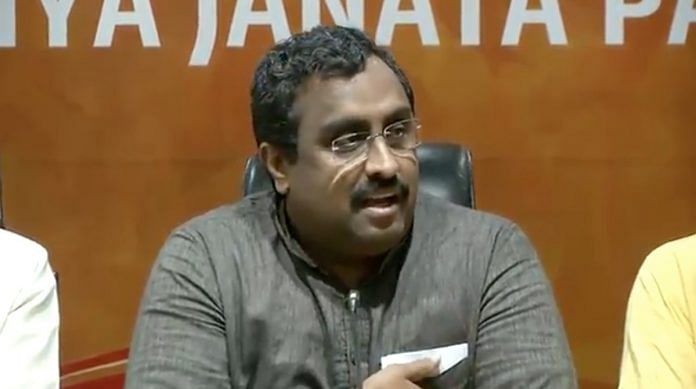Mehbooba Mufti’s PDP has lost its credibility, and party MLAs are openly revolting against their chief.
The buzz in the political corridors is that BJP is working towards installing its first chief minister in Jammu and Kashmir, and is only biding its time until the Peoples Democratic Party (PDP) splits – contrary to its public stand. The state may also get a new governor by September.
The state assembly has been kept in “suspended animation” ever since the BJP pulled out of the coalition with Mehbooba Mufti-led PDP in June.
Alluding to the rumours of an attempt to split the PDP, former chief minister of Jammu and Kashmir and National Conference (NC) leader Omar Abdullah tweeted, “Contrary to @rammadhavbjp assertions, the state unit of the BJP confesses to being party to the efforts to break the @Jkpdp. Power at any cost would seem to be the guiding philosophy”. In response, BJP general secretary Ram Madhav said that the governor’s rule would continue in the state.
Open revolt in PDP
Last week, Mehbooba warned of “dangerous” results if Delhi tried to break the PDP.
The PDP has 28 MLAs and is the single-largest party in the 87-member assembly. The BJP has 25 MLAs, followed by the NC’s 15 and the Congress’ 12. Sajjad Lone’s Peoples Conference has two MLAs and rest are Independents.
To form the government, the BJP needs 44 MLAs. The party is believed to have support of two Independent legislators besides the Peoples Conference. It is still short of 15 MLAs – the party is hoping to mobilise rebel PDP leaders and some Congress legislators. The Congress and the NC have ruled out forming a government.
The PDP today is most vulnerable to a split than any other party in the Valley. It has lost credibility during its three-year rule, and its legislators are now uncertain about their future and electoral prospects.
Influential Shia leaders such as Abid Ansari and Imran Ansari have openly revolted against Mehbooba, accusing her of turning the party into a family enterprise. The rebels feel that the PDP has lost its base in south Kashmir and Mehbooba has failed to read the signals.
Backdoor talks on
Senior BJP leaders in the state have confirmed that the party is in talks with rebel PDP MLAs.
“Why should we lose the opportunity if PDP rebels support us? Did we not form the government in Bihar with Nitish Kumar when he broke away from the Grand Alliance last year,” asked a senior BJP leader in Delhi. But, he says that things will move only after the PDP rebels come out in the open. Ram Madhav’s two-day visit to Jammu from 21 July might speed up the process.
With the BJP’s Nirmal Kumar Singh as the speaker of the assembly, the rebels have an advantage as they can continue to be MLAs if the speaker delays action even after the PDP expels them.
The BJP is also banking on Sajjad Lone, once a separatist leader, to shore up the numbers. Lone and rebel PDP MLAs will help the BJP in the Valley. He contested and lost the Baramulla Lok Sabha seat in 2009 but went on to win the Handwara Assembly seat in 2014. He was backed by New Delhi for a ministerial berth in the PDP-BJP coalition.
4 reasons why BJP is eyeing power
Why does the BJP want to form a government in Jammu and Kashmir? First, it will be a validation of the efforts that the RSS and the Jana Sangh have put in over the decades in Jammu, and also consolidate the party’s Hindu base. From two MLAs in the 1987 assembly election, the BJP’s tally has grown to 25 in the 2014 polls, with an impressive performance in the Hindu-dominated Jammu region.
Second, it will help the BJP in implementing its core agenda. The BJP believes that internationalisation of the Kashmir issue by Jawaharlal Nehru was a blunder. It also holds that Article 370 was meant to be temporary but was allowed to continue even after the Constituent Assembly was dissolved.
Third, having its first chief minister in the state will be a big coup for the party, especially after the coalition experiment failed. Before 2019 elections, this will send out the message that the BJP indeed has become a pan-national party.
Fourth, the same party ruling the state and the Centre is likely to benefit the people of Jammu and Kashmir.
The BJP’s dream hinges on how fast the PDP breaks up and if it can provide a stable government. The big questions to ask are: Can the BJP end the violence in Valley and will its declared muscular policy work?
What Kashmir desperately needs is stability and development, as at least three generations of children have lost their childhood.



